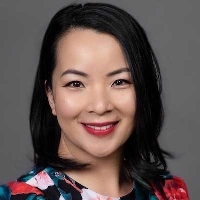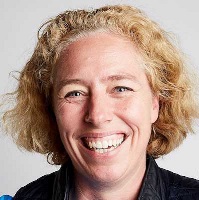Many jobs in the meeting industry (OK, most industries) were wiped out or put on hold since the pandemic began. But as we learned from a couple of intrepid meeting professionals, relying on the versatile skillset of a meeting professional, continuing to cultivate relationships and learning a few new tricks can lead to success during the pandemic and, we hope, even greater success once our industry has sort of returned to normal (whatever that means).
Connie Cay-Santos, CMP, VEMM (MPI Toronto Chapter), left her career as a corporate retail executive in 2018 to pursue a passion for events. She says it took a while to build a new network as a meeting and event strategist and that she had established a few great clients before the COVID-19 pandemic hit.

“The cancellation of my projects and contracts made me rethink and question everything, but I was confident that I wanted to help people connect through event experiences,” she says. “I quickly researched professional development opportunities that could help me upskill my knowledge and expertise for virtual events. I [decided] to take a chance on a brand-new certificate course that I could afford, and the additional benefit of being an MPI member made the Virtual Event & Meeting Management (VEMM) course from the Event Leadership Institute and MPI the right choice.”
In March, Cay-Santos was invited to be a panel speaker during a social hour for Tourism Burnaby (British Columbia) and was later invited to be a committee leader, helping to organize and host weekly virtual socials that “enabled a safe space of collaboration, support and shared connections for business owners and communities impacted by COVID.”
“I finished the six-week course and passed the exam to get my VEMM certificate and was then contracted by Tourism Burnaby to help plan, design and execute the first virtual conference for their business stakeholders,” she says. “The six months of volunteering to help host weekly virtual social hours and the execution of the first virtual conference that I did for Tourism Burnaby gave me new exposure and confidence in knowing how powerful virtual events can still help people connect. A few weeks after that virtual conference, I was called by an attendee who noticed me from the virtual social hours and asked me to help answer a few questions around virtual events—that conversation lit a spark for me and presented an opportunity for me to pivot.”
Virtual Event & Meeting Management Certificate: Build on your existing event management skillset.
Cay-Santos then joined NexTech AR—which offers web-based augmented reality for ecommerce, advertising and virtual events—as director of channel marketing and event strategies. She was promoted to vice president of special projects two months later.
“The most enjoyable part: the thrill of working with so many brilliant people and not being alone as an independent meeting and event strategist,” she says. “I get to leverage all my strengths from my 14+ years of corporate strategy and operation experience, entrepreneurial skills and passion in the event industry to help connect people and communities.”
The ability to see the value in connecting with others through virtual experiences and knowing how to plan virtual events strategically has been key to her success, Cay-Santos says.
“The VEMM certificate was the adaptive change agent for me!” she says. “COVID pushes us to adapt to many virtual networking engagements and it has opened up the reality that we are a smaller global community. Regardless of where you live in the world, virtual events help make it easier to connect with people that I would not have met if I only attended personal, regional events. My reality today is that I’m working with 200+ team members from 20 different countries that can speak 16 different languages!”
Miranda van Brück, CED (MPI Netherlands Chapter), began focusing much more on digital events in 2020, but she doesn’t really view this as a career shift.

“I am still helping clients design events worth attending with a laser focus on audience engagement and I am still leading the production for events,” says van Brück, creative director for The Content Studio. “The only thing that has changed is the ‘venue.’ Instead of traveling the world to execute these events, the event venue is often my home office and sometimes a professional studio to which I travel to produce digital events.”
She had digital event production experience before the pandemic, which is why she was contacted by several clients once the pandemic hit and has been involved in various capacities with more than 10 events, ranging from pharmaceutical (Johnson & Johnson) to telecommunications (Mitel) to automotive (Kia).
“The clients were all looking for assistance with redesigning their existing events for digital delivery,” van Brück says. “In addition to the redesign, I have also been heavily focused on being the liaison between the client and the studio and platform, as this way of operating is new to many planners.”
The most challenging part of working on mostly digital events, she says, has been helping clients understand that their events need to be designed for digital instead of making the digital experience fit an existing in-person event structure.
“The only thing that has changed is the ‘venue.’ Instead of traveling the world to execute these events, the event venue is often my home office.”
“Shortened lead times and a large volume of events that need assistance have been other challenges, and it broke my heart, but I had to say no and decline several requests and assisted in finding other digital producers for those clients,” van Brück says, noting that she has also enjoyed being able to redesign and deliver events on short lead times while working with smart people around the world and “being part of the solution to keep people meeting.”
She says previous digital event production skills were most critical for her success in 2020 but notes that the skills one needs for live events are similar to what is required in the digital realm.
“Event design thinking, strategic thinking, project planning, script development, speaker preparation (with modifications, of course), budget management, vendor management, leadership skills, presentation skills, run-of-show development, show calling—these are all similar skills that are needed,” van Brück says. “Digital just needs an adjustment on how you approach these and deeper knowledge of how the human brain processes digital information and how to manage attention spans for a digital audience. We all became TV producers overnight, and being open to learning new things, working with new technologies and new people and being flexible to adjust your typical way of working are some of the most important items to be successful in this new normal.”







